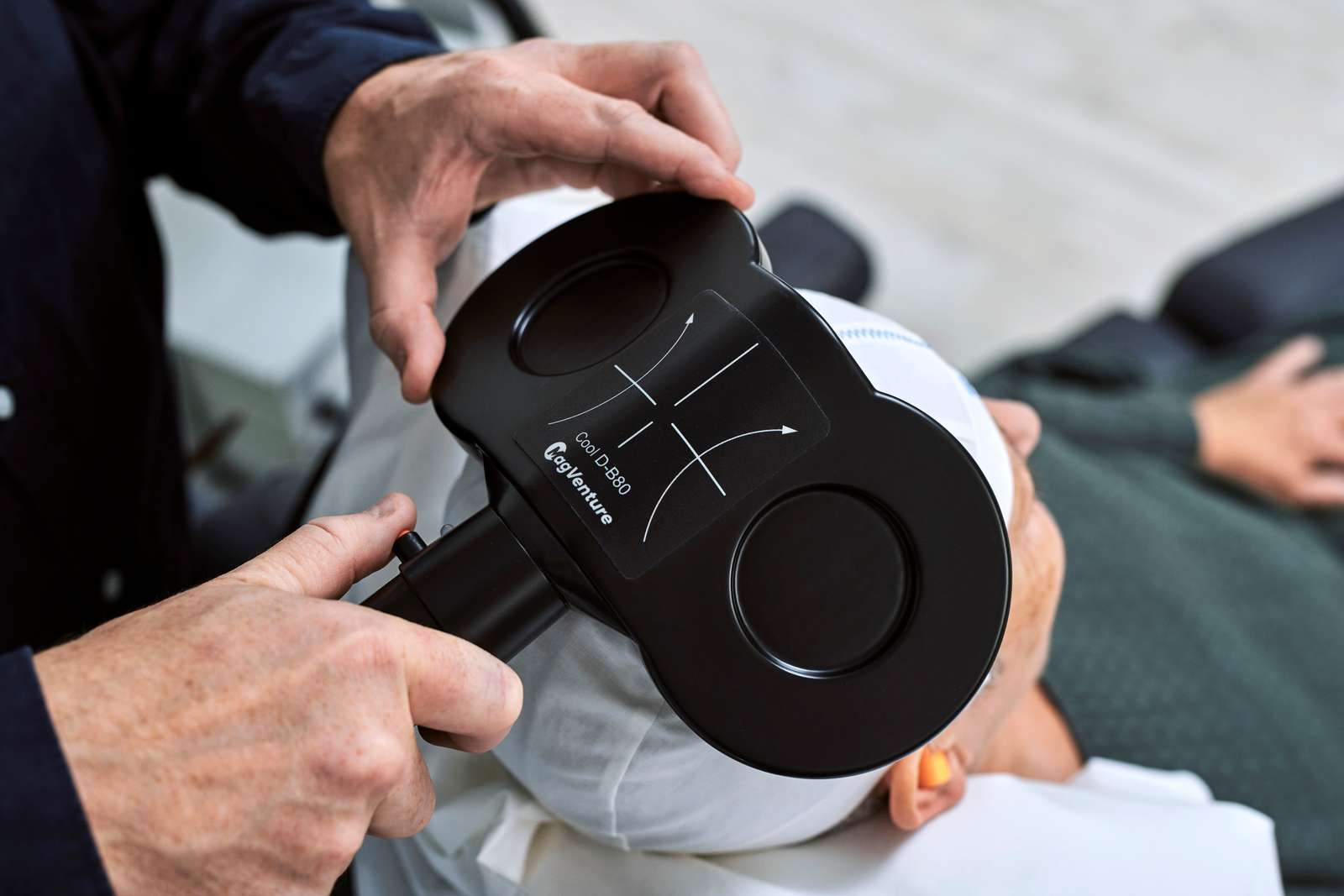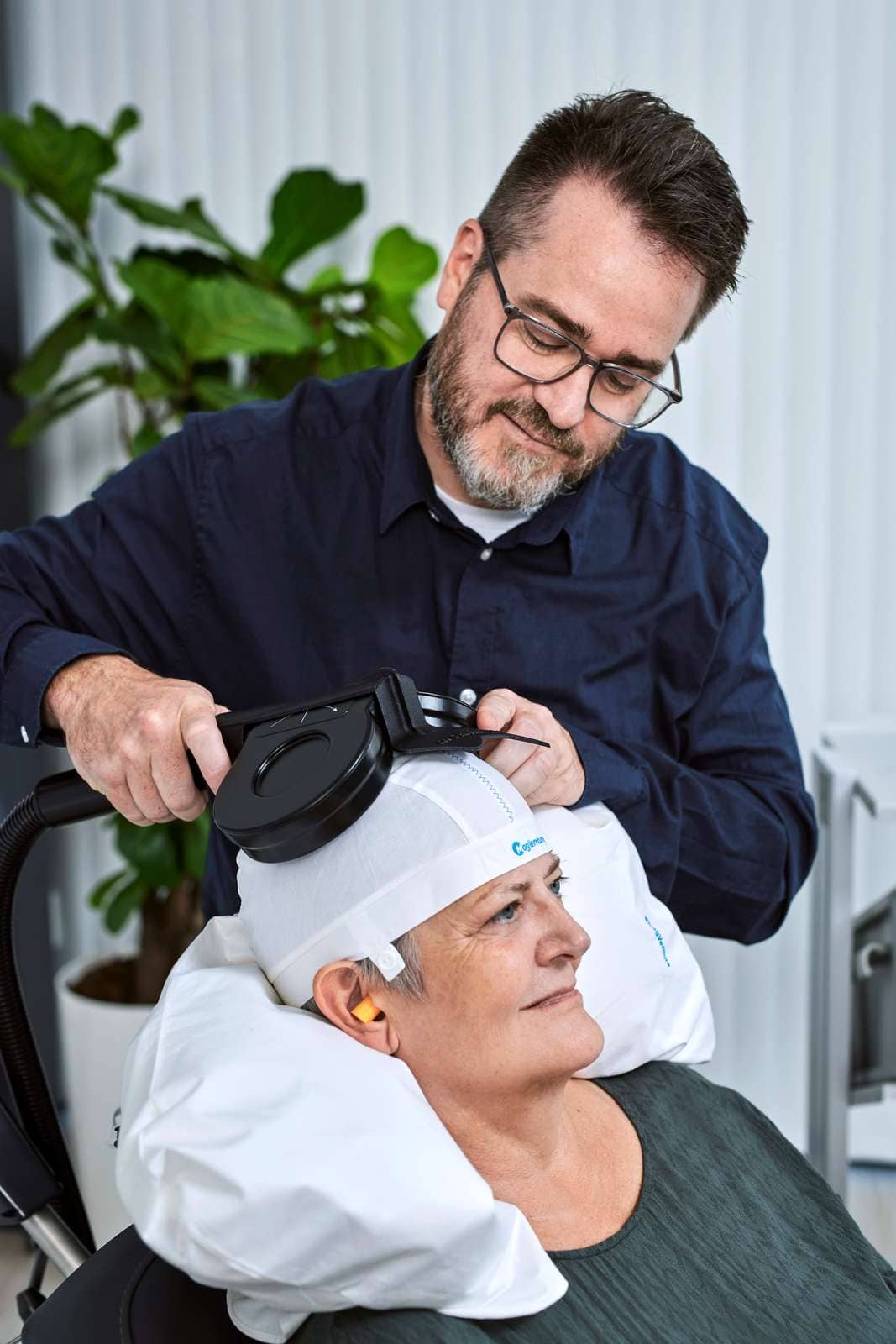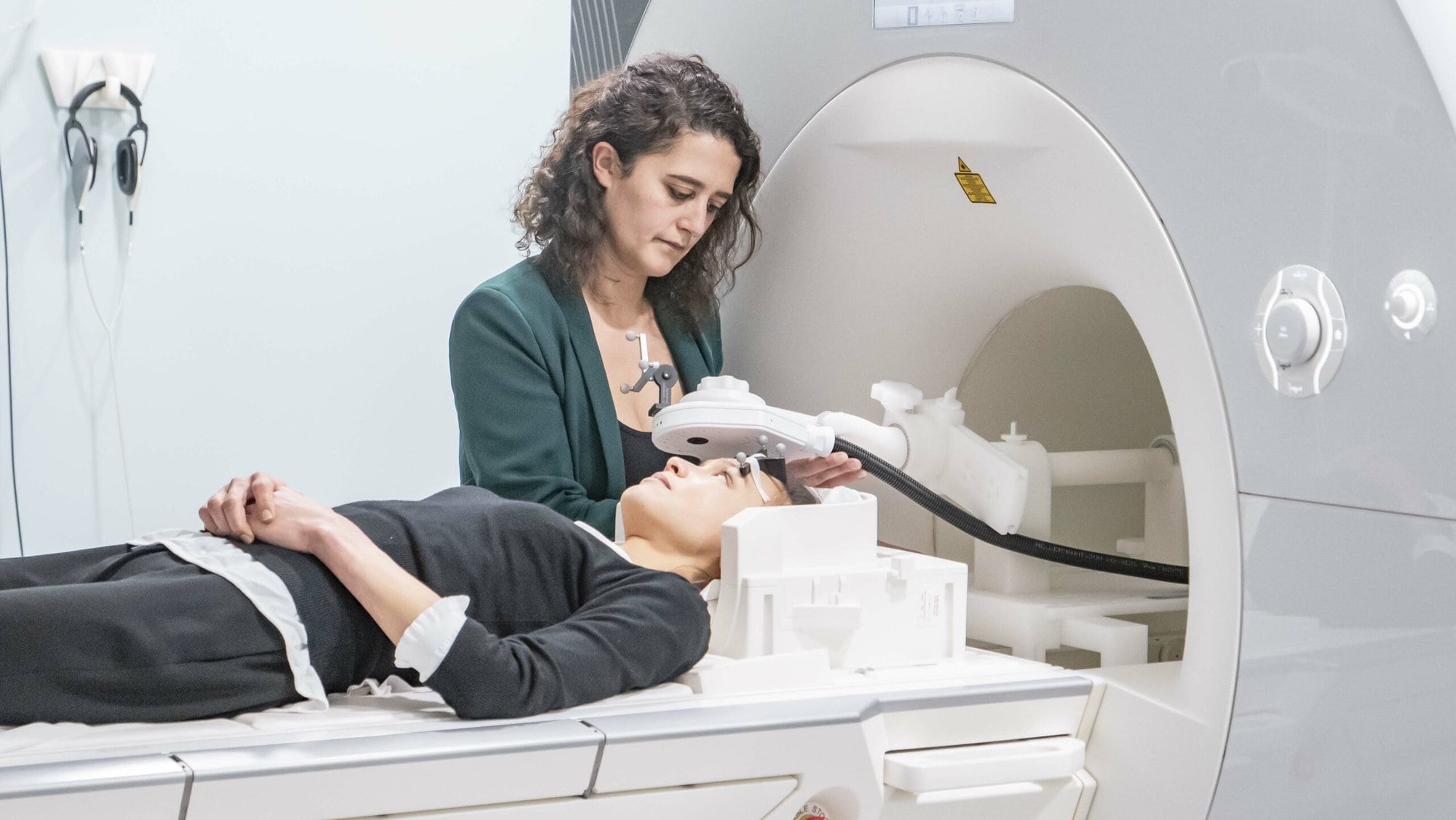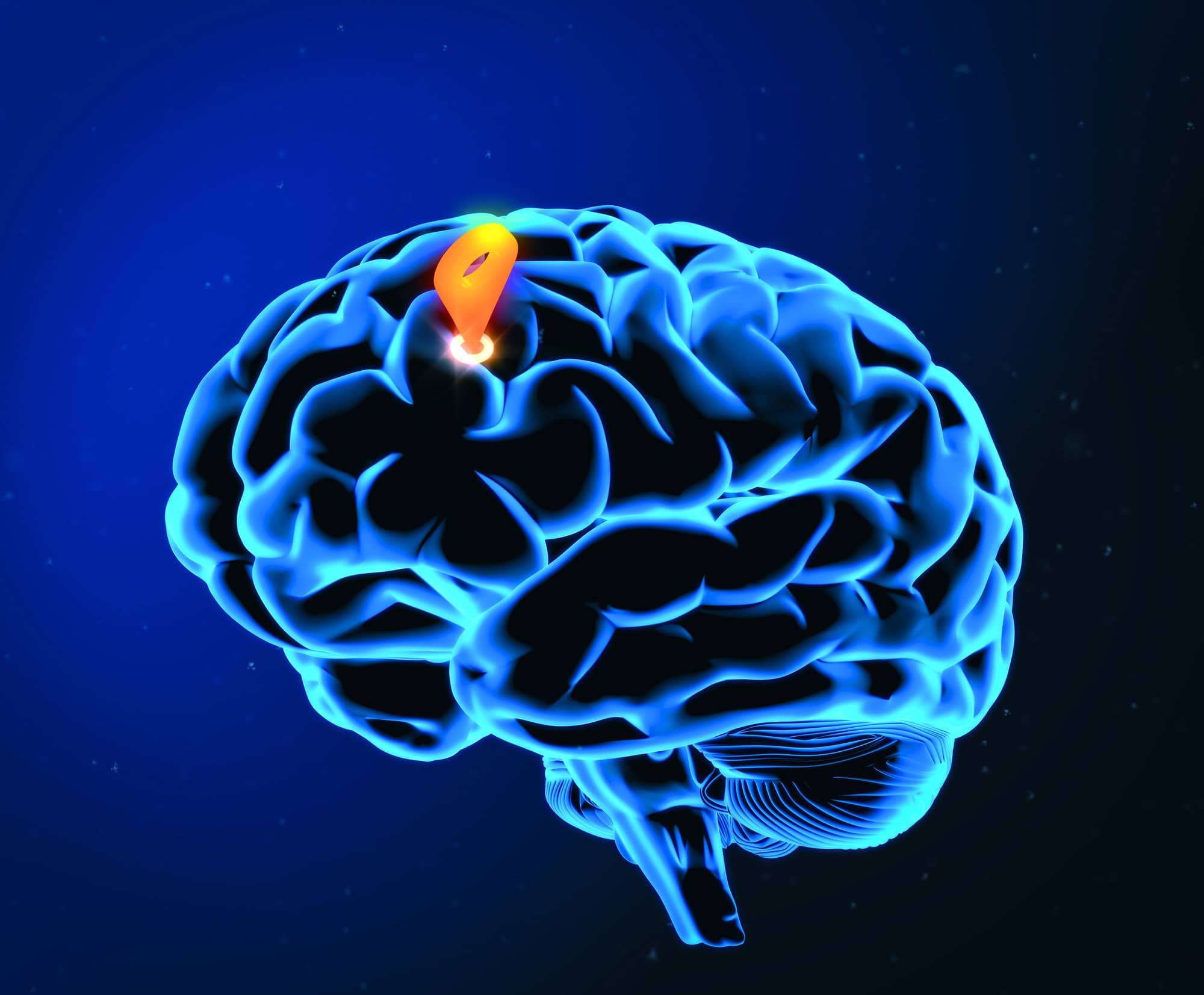
How TMS can help your practice
Effective and non-invasive
Transcranial magnetic stimulation (TMS) is a non-invasive treatment option for various mental health conditions, including depression and OCD. Clinical studies have shown that TMS can significantly reduce depressive symptoms in patients who do not respond to traditional treatments.
Low operating costs
MagVenture TMS Therapy has no recurring fees, resulting in low operational costs. It only requires a one-time investment during the product lifetime.
The system is easy to use
At MagVenture, we prioritize reliable and user-friendly systems. We assist in every step of the process, from selecting the most suitable system for your requirements to complete installation and staff training, as well as ongoing service and support.
Watch this video to understand what is TMS and how it can help your practice.

Psychiatry
TMS is one of the fastest growing therapies in mental health for treating depression and OCD. Due to its high efficacy, TMS offers a viable alternative for patients who do not respond to or cannot tolerate medication. Evidence suggests that multiple treatment modalities – TMS combined with counseling or psychotherapy – can lead to improved outcomes.
As well as making a difference in people’s lives, adding TMS to your psychiatry or psychology practice, can be an effective way to diversify your offerings to patients and future-proof your business.

Exploring the brain with TMS research
Enabling researchers to gain an even deeper understanding of the human brain is just as important now as it was when MagVenture introduced our first TMS device back in 1992. MagVenture has, since the very beginning, engaged in long-term, close collaborations with numerous high-ranking neuroscience research institutions and facilities worldwide, allowing scientists to continuously challenge and push the limits of TMS.

Safety information
Magnetic stimulation is considered a safe procedure with the most common side effects being relatively mild and transient. The most important safety information is provided below. Please consult the User Guides or your doctor for additional safety information.
Side effects – cortical stimulation (stimulation on the head)
The most commonly reported side effects during and after TMS treatment are minor scalp pain, headache and burning sensation in the area of stimulation. However, these side effects are transient and will usually resolve immediately or within the first week of therapy. In rare cases, seizures may occur, but the risk is very low (less than 0.1% per patient) when treatment is performed according to the safety recommendations for TMS therapy. (Reference: Clinical Evaluation Reports – CERs)
Side effects – peripheral stimulation (stimulation on the body)
The only known side effects of stimulation outside the cortical area are minor pain and tingling at the stimulation site.
Contraindications
The MagVenture TMS Therapy system creates a magnetic field that could cause metal objects near the stimulation coil to move or get hot. Patients with non–removable magnetic-sensitive metals or metallic devices implanted in their head or in body parts near the stimulation coil could experience side effects from the treatment and should not receive therapy with the MagVenture TMS Therapy system.
*MagPro® stimulators R20, R30, R30 with MagOption, X100, and X100 with MagOption are all FDA 510(k) cleared for stimulation of peripheral nerves for diagnostic purposes (k160280, k061645, k091940).


